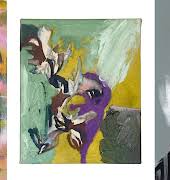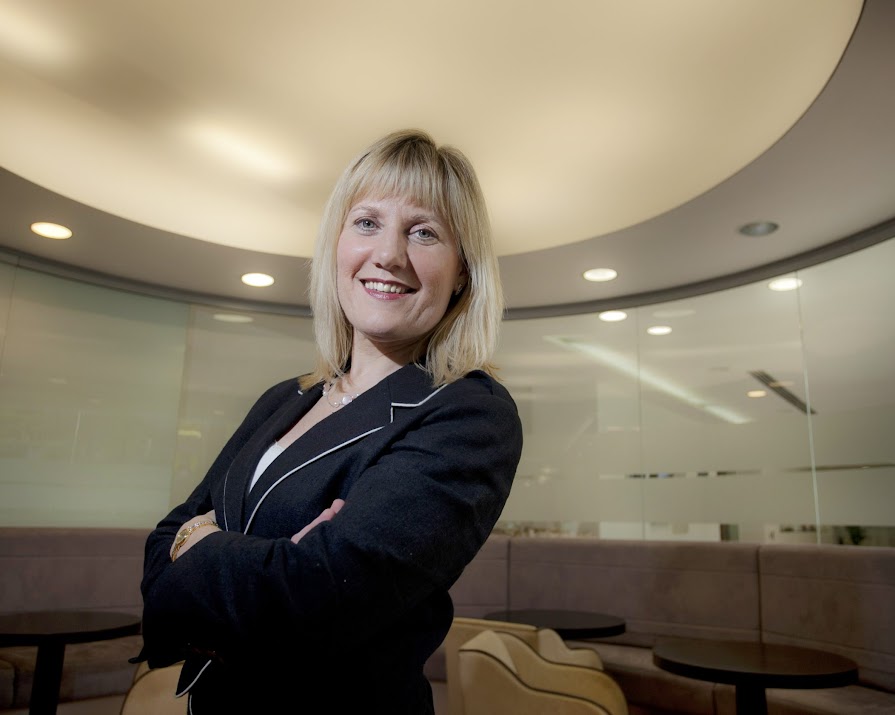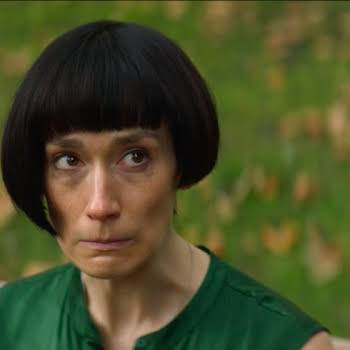By Sinead Brady
04th Jan 2018
04th Jan 2018
In case you aren’t addicted already, Gilt is one of the largest online luxury brand retailers in the world, employing over 65,000 people. With international headquarters in Dublin, it’s Mecca for people who crave luxury but love discounts- flash sales from brands like Burberry and Armani Exchange (and that’s just today) are seriously habit-forming. Gilt COO Fidelma Healy recently talked about leadership and her own career trajectory, the challenges and learnings that have made her such a trailblazer with career psychologist Sinead Brady. Honest, candid, warm, funny and direct, Fidelma believes that while tech is important, “we need to get up off our ‘asses’ and walk around the corner to talk to people.”
A quote you love
‘Better to have tried and failed than not have tried at all.’
As a child what did you want to be when you grew up?
A nurse.
Who inspires you?
People starting out in their career who worked with me and are now blossoming. That’s what I get the biggest kick out of.
What was your momentous career moment?
I thought getting to the top was about working myself to the bone. But I realized that in order to progress I needed to delegate and learn how to articulate business needs to my managers. I had to get to know my line manager, communicate with them in their language, break down information, present it and put a reasonable case before my boss to show my need. Once I realized this it all made sense and my career blossomed.
What gets your creativity flowing?
I have to draw things.
Tell me about your career journey to date – the whistle stop version…
I started off in Science and didn’t like it so I moved to Arts. Then I did the Dip to become a teacher but I never wanted to teach. It was the 80’s and it made sense. While doing my Dip I enrolled in a night class to learn to type. Again, I didn’t really want to type but I knew that having keyboard skills was essential for my career and I knew tech was the future so I did it.
Would you believe at the time, in Ireland, there were no computing or IT courses but I knew that keyboard skills were essential so I went that route. I also knew that I wanted to work with people so I studied HR at night.
My first job after that was in a HR role in Systems Dynamics which was Ireland’s longest established software company. After that I worked as HR Manager in Friends First, a life assurance company.
I loved the start-up space which led me to work as an HR Director while building two new tech companies in Ireland called Novell and Cognotec.
That takes me to about mid-career where I made a move into the financial service sector working as the Operations/HR Director at Standard Life and then supporting the establishment of PostBank as their Operations/HR Director from 2007.
In April 2011 I was appointed as Chief Operations Officer (COO) of Gilt where I led the establishment of our Irish base with a customer service centre in Limerick and our R&D centre in Dublin. My role is now Dublin-based with responsibility for Limerick and I feed into the global Gilt team.
You have changed career and industry several times how did you manage that?
I have never been afraid of a new opportunity. From a career point of view, you can box yourself in and narrow your options. You might say, ‘I could never go for that or they wouldn’t look at me’ but I believe instead in thinking, ‘what’s the worst that could happen?’. That has paid dividends for me.
You make it sound simple.
In some ways, it is. It’s about making choices that put you in control.
For example, early in my career I was bored in my role. I wanted to learn more and I needed to work for a more experienced person. I changed jobs, took a more junior role and earned less money. Instead of being the head of a department I worked for people I could learn from. That move rounded off my CV and in many ways got me where I am today.
It wasn’t easy but stepping backwards in the short-term to move forwards eventually was the best decision I ever made.
What advice would you give to someone who wants career change and doesn’t know what to do?
Remember you always have choices, so choose to be proactive.
Do one small thing every day that leads you closer to your goal, reconnects you with old colleagues and gets you talking to people.
Even if you don’t have all the answers straight away, set small targets for yourself that put you in control. This prepares you to take opportunities when they come along.
Have you any personal examples?
In 2010, the company I worked for was closing. My job was going but I had to stay until December 31st for a hand over.
This was a really difficult period for me as my father was diagnosed with cancer at the same time. I didn’t know what to do. Then I realized that I had choices. So everyday single day I did one thing to make sure I had a job to go to in January – I either made a phonecall, sent an email or met a colleague for coffee to make sure that I had a new role to move to.
Instead of feeling paralyzed by my situation I took control.
It sounds like you are full of courage, or is it confidence? Which comes first?
Courage first, then, I think, confidence. Because once you have the courage to listen to yourself you lose fear and you grow in confidence. The courage comes from the people around you- a mentor, a manager, family, friends, colleagues. If people around you are saying you can do it then maybe you can. Listen to your gut and the positive people around you.
How did you trust yourself?
I have always had a really strong work ethic which my father instilled in me so I always had the courage to take an opportunity when it came along. Then I worked really hard to develop courage and from that my confidence grew.
It sounds like you have a really strong sense of what you want personally and professionally?
I wouldn’t have been able to put words on it until recently but yes, I am clear on my non-negotiables. I think you bring who you are outside of work into work but we are so much in the machine that we forget how to listen to ourselves.
What is your personal non-negotiable?
Taking time out.
What are your professional non-negotiables?
Integrity, respect for others and adding value.
How has understanding your non-negotiables impacted your career?
About 10 years into my career I had this moment in work and I had to make a choice. I remember my thought process when I went home that evening. I said ‘It’s obvious this is wrong and I have to speak up’.
I didn’t want to work for a company that treated people badly. So, I spoke up, even though it might have potentially had a negative effect on my career. As it turned out the company supported me, but they may not have. That moment stays with me- I thought ‘I am not going to be that person who works in a company who treats people that way. I am not going to be that person’.
I was only 10 years into my career and I couldn’t afford to lose my job. When it happened I realized if the company went against me that I could lose my job. I was always very clear that my personal and professional integrity had to match. It worked out in the end but I left that job within 6 months. I had to be in a job that I could live with myself in.
Was that difficult?
Absolutely, but I had to do the right thing. You have an impact on people when you are in a position of leadership, on their lives outside of work as well as in work. You have to deal with people as people. I simply had to stand by my non-negotiables.
What is your most important leadership characteristic?
Talk, talk, talk. To get up off my seat and go around the corner to talk. Some people say it’s old-fashioned but I say it’s vital. And, yes there is place for tech and it can’t be ignored but talk builds relationships.
So instead of an email I pick up the phone or just walk to someone’s desk to ask a question and have a chat.
You cannot shut yourself or others off. Managers who are true leaders talk with their team.
Is it not really time consuming on top of all your work?
Leaders need to think differently. It only takes time if you see it as a separate task, but if you consider it as part of what you do it is no longer about time. It’s a leadership mindset to integrate conversations and relationship-building into your role.
Is there a difference between leadership and management?
Managing is very much about getting the task done or delivering a project.
Leadership is about how you can bring people along. Its about motivating, encouraging, developing and engaging. It’s displaying in your behaviors what you value. It’s having the courage and the confidence to develop people without fear of them flourishing.
Real leadership is about bringing other people up to do your job.
As a leader how do you deal with success and failure?
When faced with failure it’s about sitting down and saying these things happen and there is nothing you can do about what has already happened. But you are damn well going to focus on how to improve tomorrow. In fact, what you do tomorrow, or the next time, is now more important than ever. Refocus, shift perspective and swap the lens. If you need help, ask for and accept it.
How do you recover from a failure or a challenging situation?
When things go wrong it’s easy to say ‘I’ll have a glass of wine, not move off the sofa and comfort eat’. These things become crippling. Again, its about choices and taking control. It may not be the solution or the answer but do something that proactively puts you in control.
Do you have a mentor?
At the moment, no. I have had people who were really important in helping me navigate my career to date but a lot of it I have carved out for myself.
In my early years, my father was my mentor, my sounding board. He was the person I went to and whom I looked to for advice. There were other important people but he was the strongest mentor. Having a mentor is key but it doesn’t mean that you can’t do it without one.
Do you mentor others?
Yes, it comes back to building relationships – mentoring and developing others is part of what I do. It’s not a separate role. I am very much of the view that as a leader/manager it’s your job to mentor and develop those around you to the point where they can do your job better than you can.
How do you manage to do everything? Family, friends, work, hobbies?
It’s not all about work. But I didn’t always think like that, especially at the start of my career. What I once thought was important I now know is not.
I went into work when I was in labour because I thought I had to prove something and clear my desk. Other people could see I wasn’t minding myself it but I couldn’t. People need to look after themselves.
What is looking after yourself?
I am talking about the simple things – eating well, exercising, switching off. I do something different everyday outside of work: choir, running, meeting friends or family. You need these things to be truly successful. As as I look back I don’t think being a workaholic got me into positions more quickly than my peers.
What’s the best way to deal with your boss?
Know who you are reporting to, know how they think and understand them. Get to know them as a person through conversations. Then speak to them in their language. For example, if they like data give them data.
What advice would you give to somebody starting out in their career?
Make the job yours. Most jobs are ill-defined now and change from day to day. The best way to grow in a role is to make it yours. Make sure you are agile, adaptable and flexible.
Ask lots of questions. Nobody expects you to have all the answers. As you become more senior you realise that you don’t have to have all the answers. You just have to know where to find them. Ask questions all the time. In fact, the best advice I can give is – make your first six months all about questions. Be curious and learn, the rest will come.
Your career is your responsibility and it is up to you to step up and decide what you want from it. If this happens within your company great, but if not, take control of it and do what you need to do to make your career work for you.
Stepping out and stepping back is what’s required in order to step on and step forward.
Take time to mind yourself.
What’s your next big goal?
At the moment I work on short term goals. Keep your eye on the future but focus on the short-term. Know what you want and then deliver. It’s up to you – nobody else. The best advice I ever received was, “your career is your responsibility, nobody else’s.”























